Things You Do Not Know Were Invented By Nigerians

This article unveils 10 lesser-known inventions originating from Nigerian innovators. Inventions, characterized by the fusion of creative ideas into practical applications, play a pivotal role in societal advancement. These ingenious creations result from the unique combination of resources in novel ways, enhancing the quality of life and fostering adaptability to change. The inventive spirit not only introduces new tools and mechanisms but also contributes to the overall betterment of products and services, creating a positive impact on the surrounding environment.
Nigeria, a nation celebrated for its resilience and determination, has emerged as a hub of innovation. Beyond the recognized qualities of its people, Nigerians have significantly contributed to the global landscape through remarkable inventions. This article sheds light on 10 such contributions, highlighting the inventive prowess that has not only shaped local communities but has also left an indelible mark on the international stage. Each invention serves as a testament to the creativity and resourcefulness of Nigerian innovators, underscoring their role in propelling societal growth and success.
10 Things You Do Not Know were Invented By Nigerians
- Philip Emeagwali - Programme for the world’s fastest computer
- Otu Oviemo Ovadje - Emergency Blood Transfusion System
- Ume Ifeanyi Charles - Various Electrical Devices
- Ndubuisi Ekekwe - Development of Microchips for surgical robots
- Kunle Olotokun - Multiprocessor chips to allow thread-level speculation (TLS)
- Saheed Adepoju - InYE Tablet
- Samuel Achilefu - CancerVision Google
- Shehu Saleh Balami - First Solid Fuel Rocket
- Mohammed Bah Abbah - Pot-in-pot Refrigerator
1. Philip Emeagwali - Programme for the world’s fastest computer
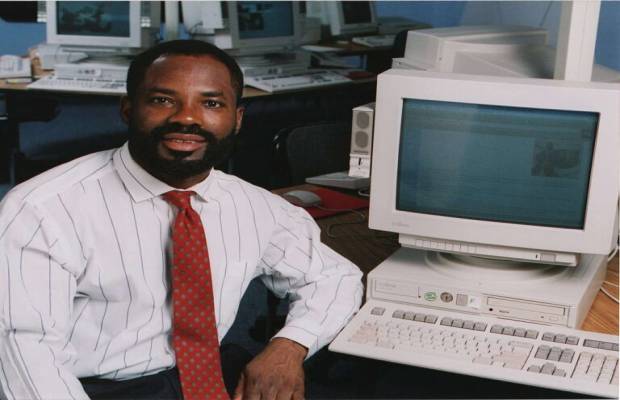
Philip Emeagwali, a Nigerian computer scientist, achieved significant milestones in the realm of high-performance computing during his time in the United States. In 1989, he garnered the prestigious Gordon Bell Prize for exceptional price performance in high-performance computing applications.
Emeagwali's most notable contribution lies in the creation of The Connection Machine, a groundbreaking advancement surpassing previous designs. Unlike its predecessors, including those by IBM's Thomas J., The Connection Machine utilized 65,000 parallel-linked computer processors. This innovation, rooted in computational fluid dynamics, revolutionized oil-reservoir modeling. Notably, this supercomputer boasted a staggering processing speed of 3.1 billion calculations per second, surpassing even the theoretical capabilities of the Cray Supercomputer.
Throughout his career, Emeagwali collaborated with esteemed institutions such as the Maryland State Highway Administration, the U.S. National Weather Service, the U.S. Bureau of Reclamation, and the University of Michigan, where he conducted award-winning research. His impactful contributions resonate not only in the technological sphere but also in diverse fields, reflecting the far-reaching influence of his pioneering work.
2. Otu Oviemo Ovadje - Emergency Blood Transfusion System
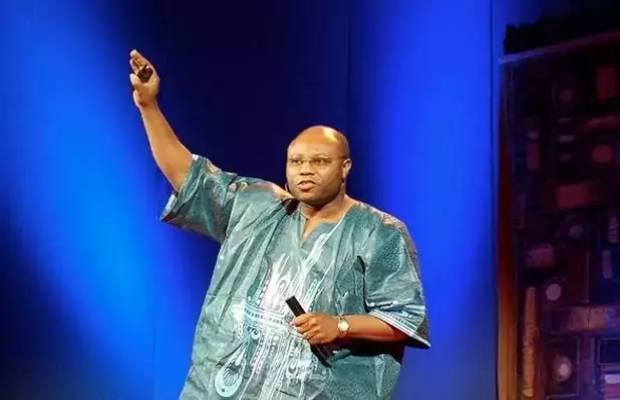
READ ALSO » 10 Animals That Were Rediscovered After They Were Believed To Be Extinct
Dr. Felix Otu Oviemo Ovadje, a distinguished Nigerian doctor and Brigadier General consultant Anesthesiologist in the Nigerian Army, garnered recognition as the Best African Scientist in 1995. His notable achievement was marked by the World Intellectual Property Organisation and Organisation of African Unity Gold Medal, awarded for his groundbreaking work addressing a critical issue, abnormal pregnancies leading to maternal deaths, particularly from ectopic gestation.
In his capacity as Chief Consultant Anesthesiologist and Intensive Care Physician, Dr. Ovadje devised the Emergency AutoTransfusion Device, commonly known as the Eatset. This cost-effective technological marvel proved instrumental in recovering blood from a patient's internal bleeding organs and reintroducing it into the bloodstream. The Eatset, designed to operate without electricity, emerged as a crucial solution to mitigate blood loss, especially in cases of pregnancy-related internal hemorrhage.
Motivated by the alarming mortality rates among women experiencing ruptured ectopic pregnancies, Dr. Ovadje's device demonstrated its efficacy by saving the intraperitoneal blood of 12 patients. This groundbreaking achievement was presented at the World Congress of the International Committee of Military Medicine (ICMM) in Augsburg, Germany, in June 1994. The Eatset gained global acclaim, cementing its status as a significant medical innovation and earning publication in the ICMM journal in 1995. Dr. Ovadje's contributions underscore the profound impact of Nigerian innovators in addressing critical healthcare challenges.
3. Ume Ifeanyi Charles - Various Electrical Devices

Dr. Ume Ifeanyi Charles, a distinguished Nigerian Professor of Mechanical Engineering and Director of the Advanced Electronic Packaging and Laser Processing Laboratory at the Georgia Institute of Technology, left an indelible mark in the fields of manufacturing and mechatronics. His extensive research, both nationally and internationally acclaimed, significantly contributed to advancements in microelectronics.
Prior to his passing, Dr. Ume's influential work extended to the foundation of AkroMetrix, LLC in 1993, where he served as the chairman of the board. This company specialized in developing systems to measure the warpage of microelectronic packages in the semiconductor industry, enhancing their reliability.
Among Dr. Ume's notable inventions are:
1. Method and Apparatus for Measuring Thermally Induced Warpage in Printed Wiring Boards Using Shadow Moir (United States Patent No. 5601364, Feb. 11, 1997)
READ ALSO » Mr. Bean, 15 Things You Might Not Know About The Character Actor
2. Method and Apparatus for Measuring Thermal Warpage Using Projection Moir (United States Patent No. 6564166 B1, May 13, 2003)
3. Object Inspection Method and System (United States Patent No. 6747268, June 8, 2004)
4. Inspection System and Methods (United States Patent No. 7492449, February 17, 2009)
5. Ultrasound Systems and Method for Measuring Weld Penetration Depth in Real Time and Off-Line (United States Patent No. 7762136, July 27, 2010)
Each invention by Dr. Ume played a pivotal role in enhancing the reliability of microelectronic packages, showcasing his dedication to pushing the boundaries of technology and contributing to the field's continual progress.
4. Ndubuisi Ekekwe - Development of Microchips for surgical robots
Ndubuisi Ekekwe, a prominent Nigerian entrepreneur, and founder of First Atlantic Semiconductors & Microelectronics, a leading embedded systems company in West Africa, has made significant contributions to the field of microelectronics. With a background in the US semiconductor industry, he co-designed a generation accelerometer for the iPhone and pioneered the creation of the first wafer-level chip scale package for inertial sensors during his tenure at Analog Devices Corp.
Ekekwe's expertise in semiconductor technology extends to his role on the United States National Science Foundation Engineering Research Center E&D Committee. Recognized for his professional achievements and societal contributions, he was honored as a Young Global Leader by the World Economic Forum in 2013 and received accolades for Outstanding Leadership from the National Youth Council of Nigeria.
Hailing from Abia, Ekekwe is acclaimed for his groundbreaking work in developing microchips, specifically microcontrollers, utilized in minimally invasive surgical robots. These microchips have played a pivotal role in enhancing the functionality and efficiency of surgical robots not only in the United States but also globally. Ekekwe's innovative contributions underscore the impact of Nigerian talent on the forefront of technological advancements, particularly in the realm of medical robotics.
5. Dr. Seyi Oyesola - Hospital in Box

READ ALSO » Top 10 Things That Are Firstly Invented By Chinese
Dr. Seyi Oyesola, a Nigerian doctor with a background in Anesthesiology and Critical Care, embarked on a transformative journey to enhance healthcare in Nigeria upon his return in 2015. Disheartened by the inadequate conditions of community health centers and witnessing preventable deaths from treatable ailments like trauma, burns, and heart attacks, Dr. Oyesola sought to address these challenges.
During his tenure at the University of Lagos, where he led a team of young doctors in anesthesiology, Dr. Oyesola achieved a significant milestone by overseeing the first successful kidney transplant at the facility in 2014. With over 25 years of experience in anesthesiology and critical care, he dedicated himself to innovation, introducing high-tech medical equipment, and providing training to both urban and rural hospitals across Africa.
Among his notable contributions is the co-creation of the hospital in a box known as CompactOR (Compact Operating Room) in 2007. This innovative concept involves a mini hospital powered by solar energy or off-grid sources, ensuring complete mobility. Driven by the scarcity of power in rural African areas and its impact on essential hospital activities like surgeries, Dr. Oyesola's hospital in a box represents a groundbreaking solution to improve healthcare accessibility and effectiveness, particularly in resource-constrained environments.
6. Kunle Olotokun - Multiprocessor chips to allow thread-level speculation (TLS)
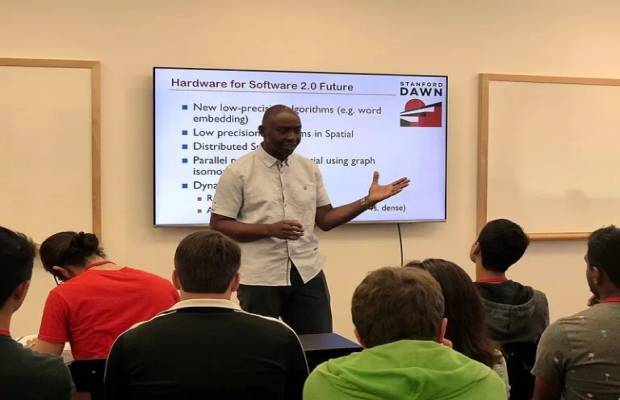
Kunle Olotokun, often recognized as the Father of the multi-core processor, holds the position of Professor of Electrical Engineering and Computer Science. Renowned for spearheading the Stanford Hydra research project, he played a pivotal role in developing one of the initial chip multiprocessors featuring support for thread-level speculation (TLS).
As the Director of the Stanford Pervasive Parallelism Lab, this British-Nigerian innovator has made significant contributions to processor technology. His noteworthy inventions include the creation of the first general-purpose multi-core CPU, advancements in single-chip multiprocessor and multi-threaded processor design, and pioneering developments in multicore Central Processing Units (CPUs) and Graphics Processing Units (GPUs). Olotokun's impact extends to transactional memory technology and the introduction of domain-specific languages programming models, showcasing his influence in shaping the landscape of parallel computing.
7. Saheed Adepoju - InYE Tablet

Saheed Adepoju, a Nigerian innovator, co-developed the Inye tablet and co-founded the technology firm, the Encipher Group, alongside Anibe Agamah. The Encipher Group aimed to commercialize the Inye tablet, unveiling the Inye-1 to the public in April 2010 and the Inye-2 in May 2011. This marked a significant milestone as it introduced the first Android-powered tablet in Nigeria.
The Inye-1, a 7-inch resistive screen tablet, ran on the Android 2.1 operating system, offering internet connectivity through its built-in WIFI card and an external 3G modem from GSM networks. Its successor, the Inye-2, featured an 8-inch capacitive screen and operated on the Android 2.2 OS. Users could access the internet through its built-in Wi-Fi card and inbuilt SIM, distinguishing it from the Inye-1. Notably, the Inye-2 boasted an extended battery life of approximately eight hours compared to the three hours provided by its predecessor.
Key features of the Inye tablets included an 8-inch capacitive touchscreen, a 1 GHz processor, connectivity options like WiFi, 3G, Bluetooth, USB, micro USB, SD card slot (up to 32 GB), HDMI, a 3G SIM card slot, the Android operating system, 5 hours of battery life, and 8 GB of internal storage. Saheed Adepoju's contributions with the Inye tablet marked a significant stride in bringing advanced technology to Nigeria and promoting accessibility to digital devices.
8. Samuel Achilefu - CancerVision Google
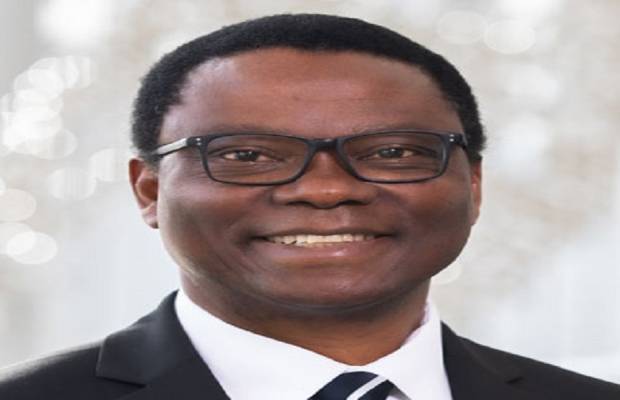
Samuel Achilefu, a Nigerian-born scientist and medical researcher, holds the position of Professor and Chair of the Department of Biomedical Engineering at the University of Texas Southwestern Medical Center. Endowed with the Lyda Hill Distinguished University Chair in Biomedical Engineering, Achilefu has been a trailblazer in both fundamental and applied research across science, engineering, and medicine.
His expertise lies in the development and application of light-sensitive drugs for cancer detection, imaging, and therapy. Notably, Achilefu recently conceptualized and spearheaded the creation of groundbreaking wearable cancer-viewing goggles. These goggles play a crucial role in the precise removal of cancer cells during surgical procedures.
Functioning on the principles of optical imaging, the cancer-viewing goggles offer real-time visualization of intrinsic and exogenous contrast within biological tissues. This innovation empowers surgeons to discern between malignant and healthy cells, ensuring meticulous removal of cancerous cells during surgery. Samuel Achilefu's pioneering work represents a significant advancement in the realm of cancer surgery, emphasizing the integration of cutting-edge technology to enhance precision and improve patient outcomes.
9. Shehu Saleh Balami - First Solid Fuel Rocket
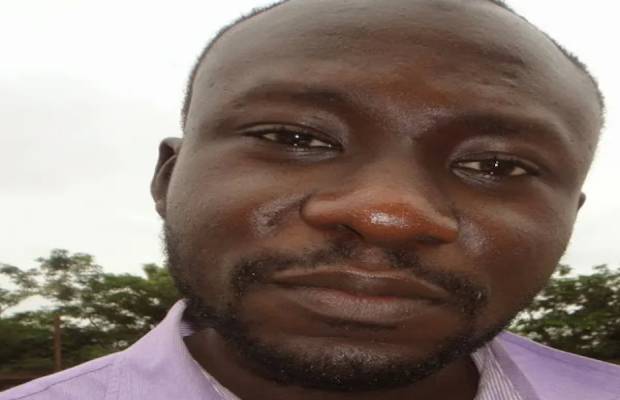
Shehu Saleh Balami, a Mechanical Engineering graduate from The Federal University of Technology Minna, Niger state, achieved a significant milestone in 2008 by inventing the world's first solid-fuel rocket. Inspired by his innovative idea, Balami successfully created and launched two solid-fuel rockets on the new Kaduna Millennium City Road in Kaduna State.
This groundbreaking invention marked a notable achievement in rocket technology, as Balami's rockets ran on solid fuel, distinguishing them from traditional liquid-fuel rockets. The rockets were further modified in 2011, highlighting Balami's commitment to refining and advancing his pioneering invention. Shehu Saleh Balami's contribution represents a historic moment in aerospace engineering, showcasing the ingenuity and creativity of Nigerian inventors on the global stage.
10. Mohammed Bah Abbah - Pot-in-pot Refrigerator
Mohammed Bah Abbah made a significant contribution to sustainable refrigeration with his invention of the pot-in-pot refrigerator, also known as zero. This innovative device operates without electricity, offering a solution to prolong the shelf life of perishable foods. Notably, it allows items like meat to be stored for up to two weeks, a considerable extension compared to traditional storage methods.
Beyond Abbah's invention, several other Nigerian inventors have gained global recognition for their impactful contributions. Examples include Arthur Zang with the Cardiopad, Olu Atanda with a self-lubricating layer for data storage, Nkiru Nwankwo with the Digital drum, Brino Gilbert with the Counter Collision Gadget, and Aloysius Anaebonam, holding 12 US patents for various inventions.
In conclusion, the array of inventive minds showcased from Nigeria reflects a rich tapestry of creativity and problem-solving prowess. From groundbreaking developments in computing, medical technology, and electronics to pioneering solutions for healthcare, agriculture, and beyond, Nigerian inventors have left an indelible mark on the global stage. These innovators, with their resilience and forward-thinking approaches, exemplify the nation's commitment to addressing pressing challenges through ingenuity. As they continue to contribute across diverse fields, the legacy of Nigerian inventors serves as an inspiring testament to the power of creativity and innovation in shaping a brighter future, not only for Nigeria but for the world at large.
